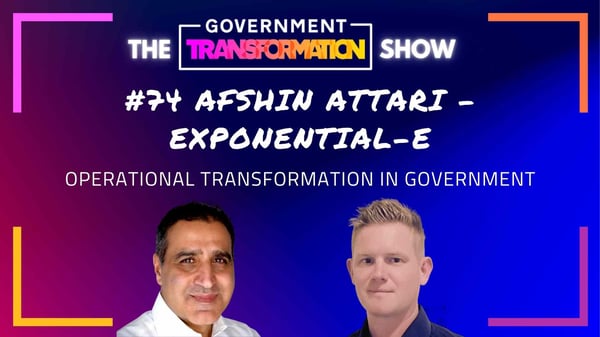Combining public and private sector skills for transformation success
Throughout the many conversations we have with public sector professionals about their digital goals, the most striking element we consistently notice is their passion and deep commitment to public service.
This was very much the common thread that ran through discussions we had at Government Transformation Summit, where we co-hosted the service improvement table. It was also clear that staff in numerous areas of the public sector are grappling with similar issues – not least operational challenges.
Bearing this in mind, it’s time to ask how we can improve knowledge sharing across the entire UK public sector, using the lessons already learned to everyone’s mutual benefit.
Public sector institutions are not commercial entities, so there is no conflict of interest in private sector experts providing best practice strategies. By collaborating we can strengthen channels of communication between different organisations. In turn, this will ensure the same challenges won’t need to be tackled from the ground up each time a newly designed service is required.
For example, how can strides made by the healthcare sector - including using patient data to optimise cross-site and cross-team collaboration, improve time to diagnosis and deliver better patient outcomes - be applied to other critical public services?
There’s no need to reinvent the wheel.
Tackling the talent challenge
Collaboration is positive. However, one frequently mentioned challenge is policies not aligning with desired citizen outcomes and, consequently, offering limited opportunities for transformation.
To a certain extent this is inevitable, as policies are typically not designed with flexibility in mind. But when rigidity becomes an impediment to achieving the best possible citizen outcomes, staff across the public sector must be able to challenge existing solutions in a safe, open and non-judgemental forum.
It's obvious that there is a strong drive for digital transformation across the whole of the UK public sector. This can only be to everyone’s benefit, with public sector staff able to adopt more flexible, efficient working models and citizens enjoying stress-free access to critical services through a range of channels – all while reducing resource consumption at a time when cost control is a serious concern.
To make this happen, however, the public sector must focus on identifying, attracting and retaining a new generation of digital talent to help drive the transformation. This is crucial as society’s problems, but also the technology that will help tackle them, become ever-more complex.
Digital leaders are important, too. We find that experience in the private sector can transfer well to public-sector bodies, bringing in expertise around service efficiency and flexibility.
Transforming together
It is key to design - or redesign - services with outcomes in mind. At the same time, organisations must be willing to consider new ways of working, while keeping exceptional citizen outcomes at the centre of all they do. Only then can we attain delivery that makes sense and makes a positive difference for users, rather than falling back on expensive approaches that ultimately fail to improve the citizen experience.
It remains important to consider processes before choosing technology. We need to firstly understand, how can digitisation make the service more relevant? This saves time, often saves money and - crucially - improves outcomes.
The support of a trusted technology partner with a proven record of success in digital transformation projects for government institutions can be of vital importance. Projects are approached differently; delivered on time and on budget; and ensure new infrastructure supports the sector’s ongoing evolution, and the delivery of critical services across nations.
With Exponential-e’s vast experience in delivering compelling services across disciplines ranging from health to education, I’m confident that conversations between private sector and public sector organisations can continue. By sharing knowledge and expertise we can produce excellent results, transform service delivery and deliver better outcomes.
To hear more from Afshin and Exponential-e, watch our podcast interview below.
.jpeg?width=100&height=100&name=large-Afshin%20Attari%20(1).jpeg)





